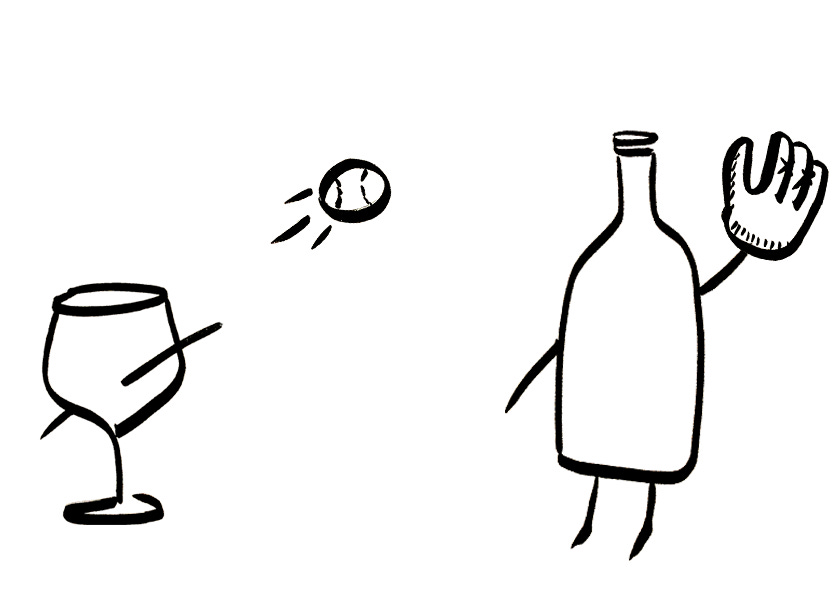Thanks, Dad
6 things my father taught me about selling
Let me tell you about a game of catch I once played with my father. Perhaps I was ten years old at the time, likely I was younger, but I don’t really remember. What I do recall is that I enjoyed fielding grounders and pop-ups. My dad observed my bias and recognized that this budding sportsman needed to practice catching line drives. He threw the baseball at me, and it squarely hit me in my nose.1 I broke out in tears. While I wanted to know why my father would “injure” me, he wanted to know why I didn’t hold my glove up. That’s what he told me I should have done after I was finished crying.
That’s Jay Rosenbaum for you; he’s happy to disperse wisdom particularly after the lived experience of failure. It’s not for everyone, but I can speak to the method’s effectiveness for driving home a point. Nothing better serves to crystalize knowledge than a gentle, if bitter, reminder that you would’ve suffered less had you done things differently. This is not to say he believes anyone should suffer; he certainly doesn’t. However, he’s long known that simply telling someone something is a shitty way of teaching.
My father spent his life in sales. For more than 40 years—starting in the mid-1970s—he hawked all manner of office supplies, from pencils and pens to reams of paper and toner cartridges.2 The consummate extrovert, he happily and doggedly sold what I believed, particularly as a teenager, were the most boring products on earth. It’s only now as I write this that I realize that he likely wasn’t all that jazzed about office supplies; he just enjoyed selling.
How different it is for wine and spirit salespeople! How lucky we are to have the opportunity to sell things we personally enjoy, to sell things we believe in! Perhaps it’s why we so often emphasize the product instead of the process. However, when you’re selling Bic pens by the gross, this is not a luxury you’re so easily afforded. It’s with that understanding, and Father’s Day being tomorrow all, that I’m happy to share six things my father has taught me about selling.
Be Like-able
In one of my first Ah So Insights’ posts, I listed empathy, motivation, the ability to listen, self-awareness, and resilience as the prerequisite traits for being a successful sales rep. No sooner than the post went live, did I receive a call from my father telling me that I forgot to mention a sixth necessary trait: likeability. I admit that he was right. People are less likely to buy things from assholes or companies they perceive as such than those they like. It might seem obvious, but in a business where hospitality is so often seen as separate from wholesale, it can’t be overstated. This is not to say that you should be best friends with all your accounts, but just strive not to be the person others complain or gossip about when you leave the room.
A Thing is Worth Whatever Someone is Willing to Pay for It
My father confided in me that he thought that most Mont Blanc pens were a sham. “Plastic!” he’d tell me, “They’re mostly just made of plastic.” I naturally inquired why someone would pay over $100 for something that functioned pretty much the same as a Pilot or a Paper Mate. “Because a thing is worth whatever someone is willing to pay for it.” This is all that matters. Wine and spirit salespeople would be wise to remember that repeat sales are not due to a product’s intrinsic value or rarity or taste, but simply their customer’s belief that what they purchased was worth it.
Maybe and It Depends
Don’t say “no.” And in some cases, don’t immediately say “yes.” The better answer is “maybe” or “it depends.”
Our Capacity to Divine Our Customers Needs is Only Limited by Our Willingness to Ask Them
My father was four or five years into his career when Post-it Notes were launched. He thought they were stupid. He thought no one would want them. Of course, he never really asked anyone; he just assumed. Well, like father, like son. I’m no different in passing on opportunities that later took off. The only consolation is a mediocre story. Lesson: ask your customers what they want.
Speak to People as a Person
You are a representative of your company, but you are not your company, and your company is not a person. Tell jokes. Don’t use the royal “we.” If you can fix an issue for your customer without the company all the better. People help people. Companies make money. Be a person. The only people that like companies are the people that own them.3 This is not to say that there aren’t companies that do some good or make some good products. But a company can’t be there for a customer the way a human being can.
Thank You and Goodbye
Good salespeople don’t talk themselves out of sales. Once you’ve closed, all you have to say is, “thank you and goodbye.”
Our memories probably diverge. He likely gently tossed the ball my way, but I hazily remember him squaring away in street like Nolan Ryan. Everyone, but my childhood self will tell you that this surely wasn’t the case. Anyway, my nose was fine, at least, until middle school when it was broken by a pack of index cards thrown off a bus.
During Halloween, our house would hand out candy, highlighters, and pens to neighborhood trick-or-treaters.
And influencer shills. I added this bit. I’m not sure my dad knows what an influencer is.


My son has taught me and many others that knowledge is acquired by patience & listening recognizing that it's the journey that we come to know & love.